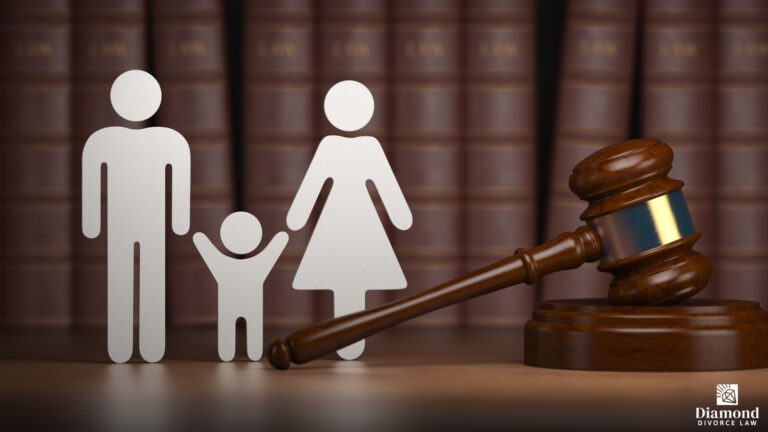Will I have to pay maintenance in Illinois?
In Illinois, maintenance, also known as spousal support or alimony, is meant to provide some financial assistance both during the divorce process and for some time after the divorce is finalized.
But the law is not as straightforward as it seems – whether you have to pay maintenance or not really depends on many different factors.
In some cases, spouses may agree on what to do, but things can get hairy if the parties can’t decide. Divorce can be messy, but talking to a Family Law Attorney at Diamond Legal will help you get the math right and fair for your situation.
Determining whether maintenance is required in Illinois
In Illinois, the first step for judges is deciding if maintenance is appropriate given the parties’ circumstances.
Some examples of relevant factors the judge must consider are:
- The parties’ incomes (including disability, retirement, future and present earnings, etc.);
- The needs of each party (such as time to develop themselves for employment, recuperating support given to the other party, the standard of living during the marriage, etc.);
- Duration of the marriage;
- How taxes affect each party;
- Whether focusing on domestic work or delaying their own professional development because the marriage played a role in their earnings;
- If the responsibilities of being a parent affect a party’s ability to find employment;
- Factors like age, health, station, occupation, vocational skills, employability, estate, liabilities, etc.; and
- Any valid agreement of the parties.
If the judge finds that maintenance is appropriate, their second step is to order either “guideline maintenance” or “non-guideline maintenance.”
Guideline maintenance vs non-guideline maintenance in Illinois
For divorcing couples who brought in a combined less than $250,000, there is a mathematical formula an Illinois judge is supposed to use to figure out how much money is going where.
This is the formula in simplest terms:
- Calculate 30% of the gross annual income of the higher wage earner;
- Subtract 20% percent of the lower wage earner’s gross annual income;
This equals proposed maintenance.
- Calculate 40% of the combined gross income of both parties.
This is the Illinois cap for maintenance.
Income means not just work salaries but income from all sources. Trying to do the math yourself isn’t easy.
In any case, it is not guaranteed the judge will use the guideline formula. The judge can take special factors on a case-by-case basis into consideration and come up with a non-guideline amount. If the guidelines are not being followed, the State of Illinois Statute requires the court to specify the reason(s) for not following the guidelines.
That’s why it is important to work with an experienced McHenry, Illinois family law lawyer to determine whether or not there is maintenance and if so the amount. In some cases, this can be a substantial contested issue.
Different Types of Maintenance
There are different categories of maintenance.
→ Temporary Maintenance:
This would be an order for maintenance while there are pending proceedings.
→ Fixed Term Maintenance:
The judge designates a termination date on which maintenance payments will end. Unless there is a proceeding to extend prior to that date, the maintenance will terminate.
→ Indefinite Maintenance
The maintenance will continue until modification or termination. The Judge will review the request and may order a modification or termination based a substantial change in circumstances or other factors as set forth in the Illinois State Statutes.
→ Reviewable Maintenance
The judge grants a maintenance award for a specific term, but specifies in the order that the court can revisit the award at a later time. At that time, the judge can decide to renew, modify, or cancel the award.
Support can also stop when:
- one of the parties dies,
- the party receiving maintenance remarries, or
- the party receiving maintenance cohabitates and resides with another person on a continuing conjugal basis.
Contact our Attorneys at Diamond Legal
There are so many things to consider when it comes to maintenance that it can be overwhelming. Our attorneys and team at Diamond Legal can assist you. We are there not only to advise you as to the law and, if necessary, to guide you through this difficult situation. Contact the Diamond Legal team today.
DISCLAIMER: Any information contained herein is solely for informational purposes. While it is important that you educate yourself, nothing herein should be construed as legal advice or create an attorney-client relationship. For specific questions, we urge you to contact a local attorney for advice pertaining to your specific legal needs.
More Posts We Think You’ll Like

How is Alimony (or Spousal Maintenance) Calculated in Illinois?
Alimony, or “maintenance” as it is known in Illinois, can be a complicated subject. Many people wonder if they will…

Top 5 Questions and Answers about Illinois Alimony
Alimony, called “maintenance” in Illinois, can come in several different forms to fit a number of situations. Many of our…

How to Know if You Are Entitled to Alimony in Illinois
A question that we often receive is, “Am I eligible to receive alimony?” This is understandable, but it’s not really…

